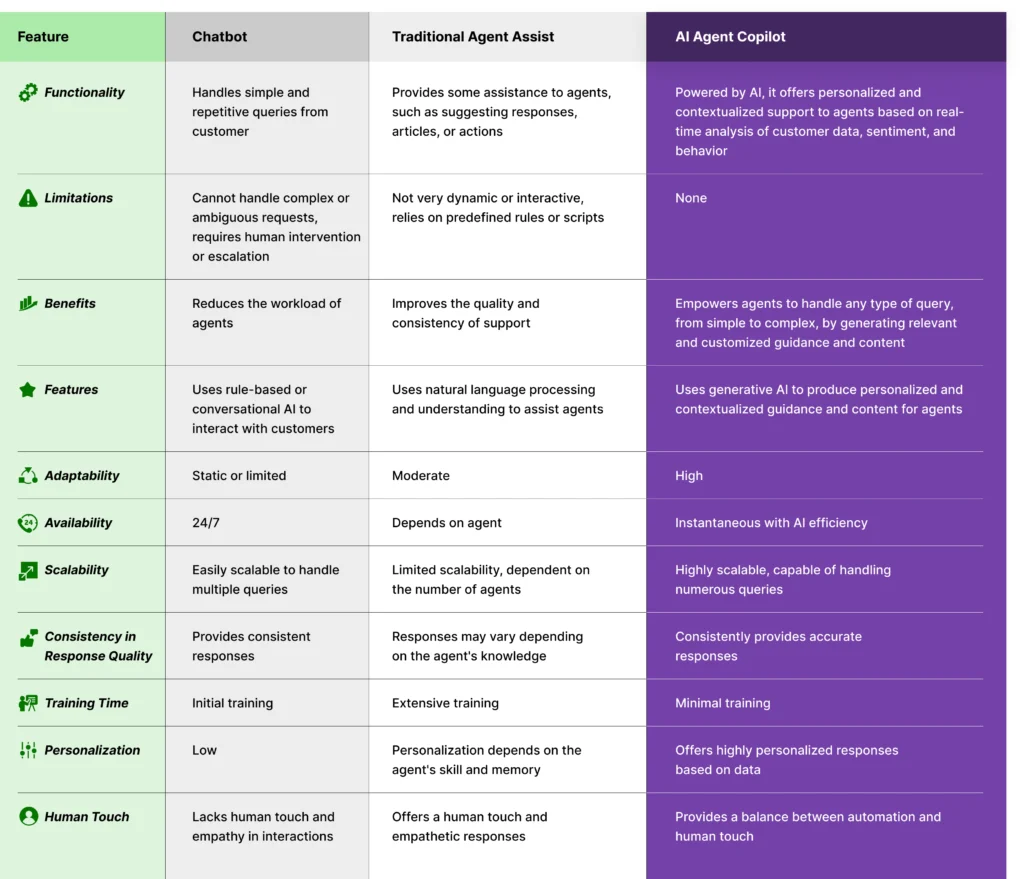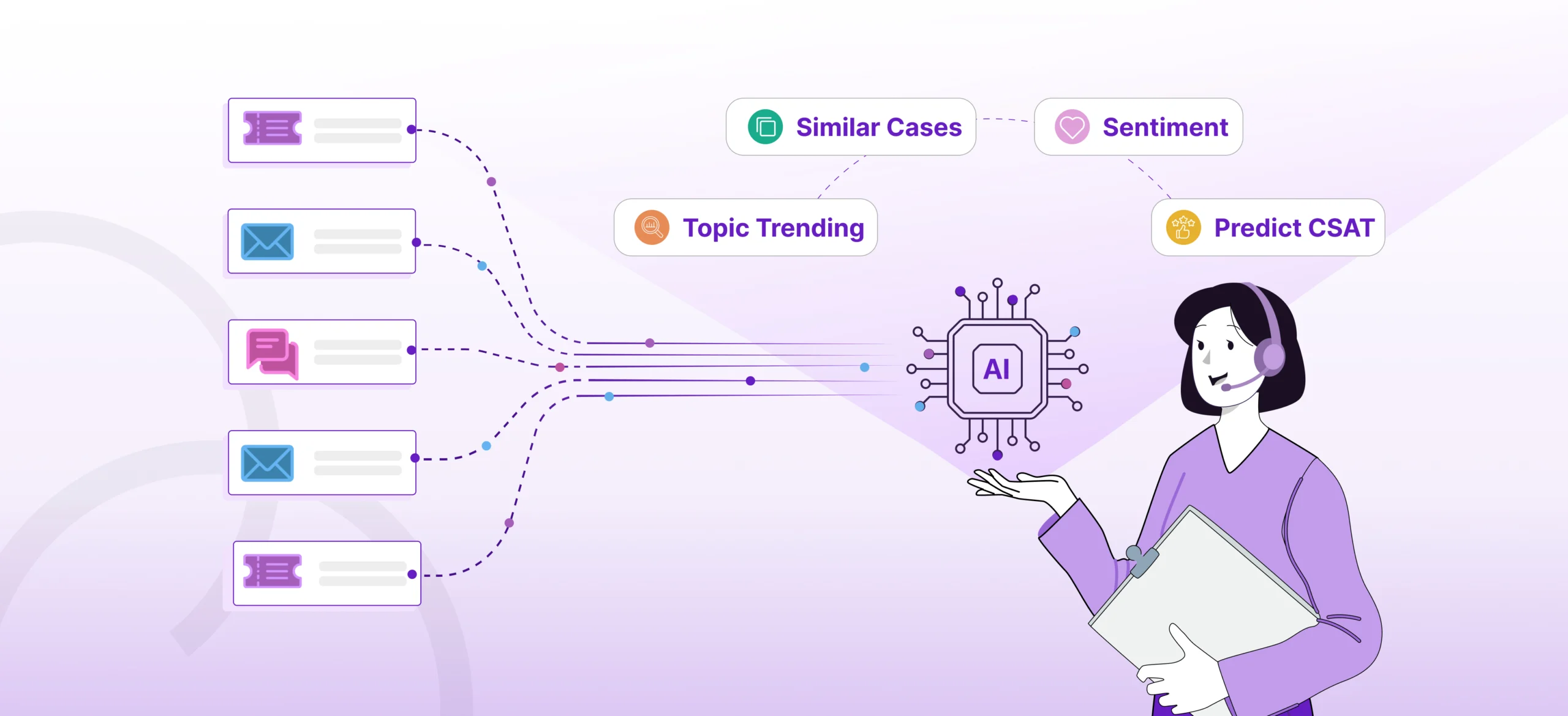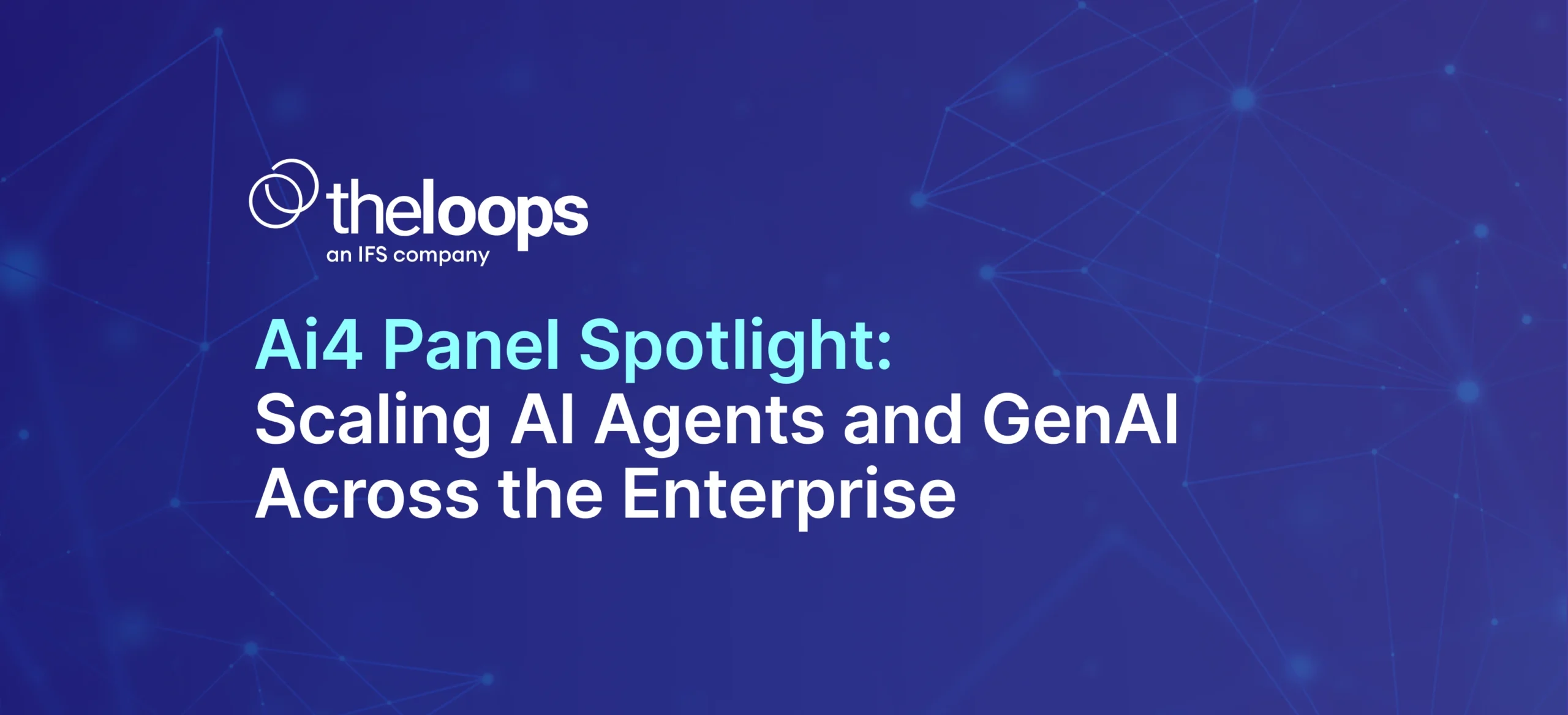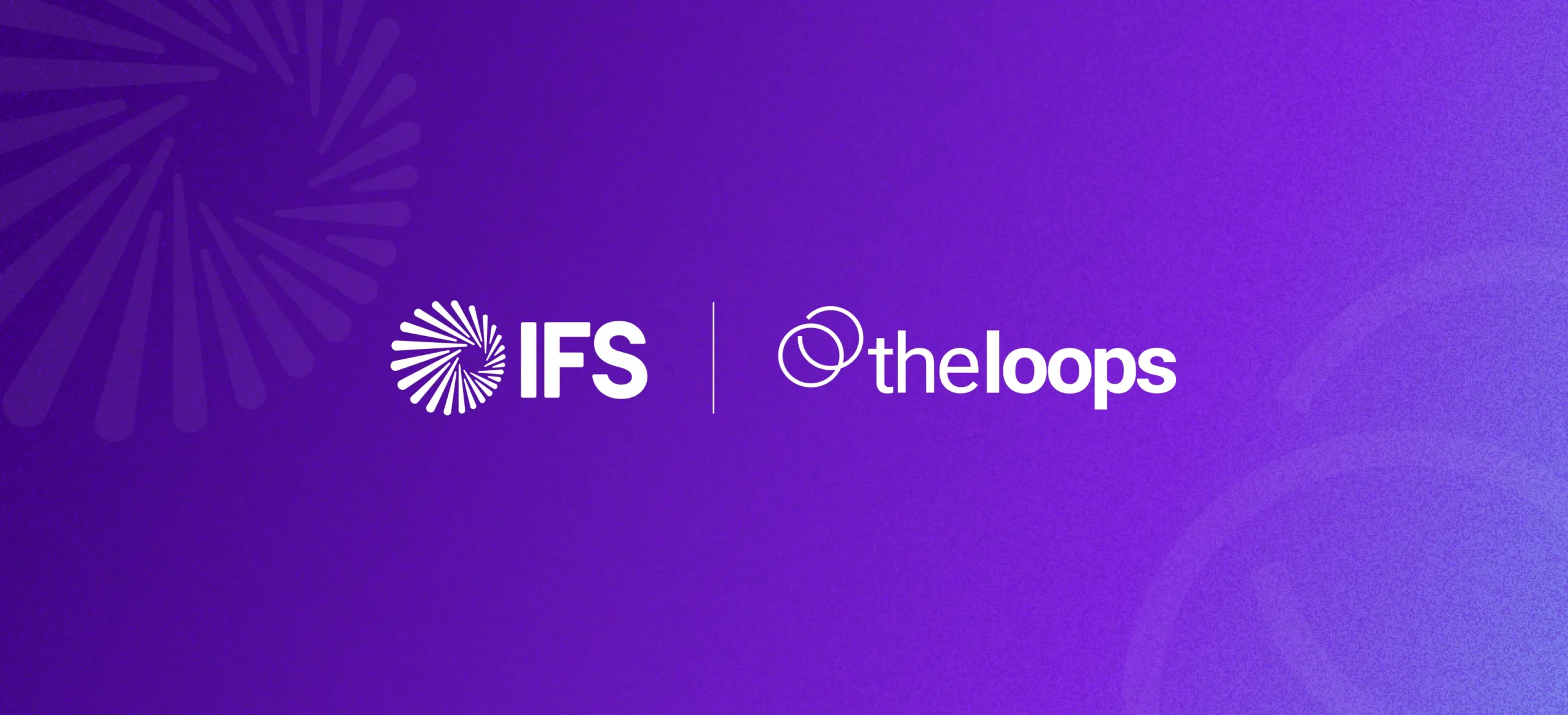The role of a customer support agent is challenging. Every day, you deal with recurring customer queries, varying in nature. When customers are frustrated or upset, cases can also become urgent and complex.
For customer support leaders, the job isn’t any easier. You’re responsible for hiring, training and retaining your agents. This also entails minimizing agent burnout, reporting to the executive team, managing a budget and containing costs.
Whether you’re an agent or a manager, the goal is the same: provide fast, accurate, and personalized support to customers and keep them satisfied. In a day of budget cuts and staffing turnover, managers face a challenge. How can they help existing agents handle more cases? And how can they maintain support quality without agent burnout?
In the past, companies adopted AI-powered solutions. They used chatbots and agent assist tools. These were to automate, resolve, and scale their support processes. However, not all AI solutions are equal or dynamic; some have limitations and drawbacks. Now with the rise of GenAI, use cases of AI for Customer Support are evolving.
In their latest research report, “Strategy and Leadership Predictions for Support and Service Leaders”, Gartner states that, “service and support organizations will discover that the biggest benefit of generative AI is in enabling human contact. They will leveraging it to enable a greater variety of post-purchase tasks.” This is why AI Agent Copilots are top of mind across Support teams at the forefront of AI-driven productivity gains and personalized service.
In this blog post, we introduce you to AI Agent Copilot for Customer Support. We’ll cover what an AI Agent Copilot is. We’ll show how it differs from other AI tools like chatbots. We will also share why AI Agent Copilots are the best solution. They improve agent productivity, support quality, and customer experience.
What Makes An AI Agent Copilot Different from Other AI Technology Including Assisted Support
AI Agent Copilots are not just another chatbot or agent assist tool for customer support—-they are vastly different. Copilots are a more advanced and sophisticated form of AI support. They go beyond deflection and limited guidance. They are equipped with dynamic reasoning engines and learn in real-time.
Traditional Chatbots
To help clarify further, traditional chatbots are designed using decision trees. As such, they handle simple and repetitive customer queries. This includes things like FAQs, bookings, or collecting feedback. Their end goal is to help clients self-serve and resolve their cases independent of agent guidance. It’s true that chatbots reduce the agent workload by deflecting cases. However, they cannot handle complex or ambiguous requests. They often require human intervention as a next step.
Virtual Agents
The next form of AI that we’ll distinguish from Copilot’s are virtual agents. Virtual agents replace people in their entirety and operate independent of any agent involvement. According to NICE, “Virtual agents are a close cousin to rule-based chatbots, whose functionality is limited by menus and keyword recognition. The user interfaces may look the same. Users might not know if they are interacting with a chatbot or a virtual agent. However, their capabilities are quite different. While chatbots may be able to handle hundreds of intents, their smarter cousins can handle thousands. Virtual agents can also be programmed to have names and personalities, and the best ones can detect customer sentiment, which allows them to avoid giving chipper responses when users are frustrated or angry.”
Agent Assist Tools
Conversely, to improve CX and help agents handle large volumes of customer interactions, traditional agent assist tools were developed next. This form of AI helped agents by suggesting relevant responses, articles, actions, and more. However, agents still had to determine which of those options to choose first. Often, agents were redirected out of their systems of record. They had to navigate each available choice. This was not ideal for the agent or the customer.
Not all was lost with this iteration of support. Agent assist features did improve the quality and consistency of support, but they were not very dynamic and lacked interactive reasoning engines. These tools also relied on predefined rules or scripts. Adoption across agents was a challenge and Support leaders found themselves at a crossroads until GenerativeAI emerged.
This chart breaks down how Chatbots, Traditional Agent Assist and AI Agent Copilots are different.

AI Agent Copilots: Low Effort, High Impact
As the name implies, AI Agent Copilots are designed for customer support. They provide personalized, guided, and contextualized support to agents. They prioritize which action the agent the should take next based on instant, real-time analysis of customer data, sentiment, and behavior. Copilots do the “thinking” for the agents in a matter of seconds. They empower agents of all skill levels. They can address any type of customer query right away. This results in 40% productivity gains for teams and an impact on MTTR no matter the vertical: B2B or B2C.

AI Agent Copilots generate relevant and customized guidance. Agents never have to leave their systems of record. This speeds up resolution time. It also increases the likelihood of resolving the case on the first interaction.
AI Agent Copilots are also much more adaptable and responsive because they learn from other agents cases and resolutions.
Examples of use cases where AI Agent Copilots enhance customer support include:
- Answering and Updating FAQs: AI Agent Copilots can provide accurate and up-to-date answers to common customer questions, such as pricing, features, or policies. They access information from various sources, such as databases, websites, or documents.
- Resolving Issues: AI Agent Copilots can help agents troubleshoot and resolve customer issues, such as technical problems, billing errors, or complaints, by diagnosing the root cause, suggesting solutions, and generating step-by-step instructions.
- Providing Recommendations: AI Agent Copilots can help agents upsell and cross-sell products or services to customers. They analyze their needs, preferences, and behavior and generate personalized offers.
- Upskilling New Agents: AI Agent Copilots can help new agents with limited product knowledge, experience and training perform at similar or higher levels than agents with tenure.
- Generating Knowledge Articles: AI Agent Copilots can identify missing knowledge articles and based on real-time case resolutions, create articles upon case closure right then and there.
- Auto-triage, tagging and routing: AI Agent Copilots remove human error by auto tagging and routing tickets. TheLoops AI Agent Copilot recognizes topics and subtopics as part of this auto classification process.
How Copilot Improves Your Support Quality and Efficiency: Real World Results
AI Agent Copilots are not a nice-to-have feature anymore but a necessity in today’s economy where customer expectations and competition are constantly rising. As evidence of this, Gartner’s recent report also stated, “Organizations that leverage generative AI to enable assisted interactions will drive value, as they use these increased touch points to go beyond resolving issues. Employees are by far the largest expense for most service and support organizations. However, AI promises to automate greater portions of agent roles, creating employee capacity and enabling new talent management approaches.” Agents can now focus on providing empathetic responses and establishing customer loyalty and retention with improved CX.
On the heels of their, “Intercom Customer Service Trends Report for 2024,“ and our recent Fireside chat with Declan Ivory, VP of Global Support at Intercom, we learned that, “77% of Support teams also believe that AI will accelerate customers’ expectations of fast response times.”
Declan also agrees:
AI Agent Copilots can deliver significant value to businesses and customers by improving key metrics such as agent productivity, customer satisfaction, and business profitability.
He’s also not the only Support leader talking about the benefits of AI Agent Copilot. Greg Gilletto, Head of Customer and Product Support at Bloomreach, has been leveraging TheLoops AI Agent Copilot technology for the past year. In this video, Greg shares how his Support team is experiencing new levels of agent efficiency.
“Implementing TheLoops has been a game-changer for our team, particularly in enhancing agent efficiency, achieving a remarkable 37% increase. Our agents, while navigating the complexities of live chat interactions, are now empowered with real-time sentiment analysis and critical client insights – from gauging client attention and risk levels to understanding context. This allows our agents to tailor their responses with precision, urgency, and informed data, significantly reducing the time spent scouring for information across disparate sources.”
What Happens Next: Adopting AI Agent Copilot For Your Customer Support Team
Now that you’ve learned more about AI Agent Copilot, how this differs from assisted support and the benefits, we hope you agree: Copilots are the future of customer experience, enabling businesses and customers to enjoy better support while empowering agents to excel in their roles.
For teams and Support Managers focused on achieving immediate efficiency and 40% productivity gains, AI Agent Copilots are the best option in any economy.
To learn more about TheLoops AI Agent Copilot, access our data sheet here. And stay tuned for our next post on AI Agent Copilots where we’ll dive deeper into the technology and algorithms fueling this.



